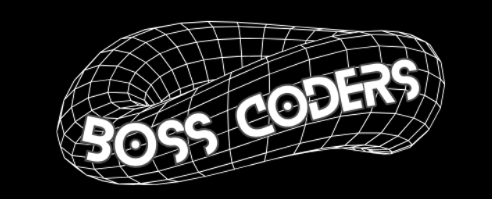Blog
Weekend Intégration: Un Moment Inoubliable pour Renforcer les Liens

Le weekend intégration est un événement incontournable pour de nombreux établissements d’enseignement supérieur et entreprises. C’est une occasion unique qui permet aux nouveaux arrivants de se familiariser avec leur environnement, de rencontrer leurs camarades ou collègues, et de tisser des liens qui pourront s’avérer précieux tout au long de leur parcours. Cet article explore les différents aspects du weekend intégration, ses objectifs, ses activités typiques, et les bénéfices qu’il apporte tant aux participants qu’à l’organisation.
Qu’est-ce qu’un Weekend Intégration ?
Un weekend intégration se déroule généralement sur deux à trois jours, souvent en dehors des murs de l’établissement ou de l’entreprise, dans un cadre naturel ou un centre de loisirs. L’objectif principal est de faciliter l’intégration des nouveaux arrivants, qu’ils soient étudiants ou employés, en leur permettant de se rencontrer dans un cadre détendu et informel. Ce type d’événement comprend une variété d’activités, allant des jeux de groupe aux ateliers de développement personnel, en passant par des moments de convivialité autour d’un bon repas.
Pourquoi Organiser un Weekend Intégration ?
1. Favoriser les Rencontres
L’un des principaux avantages d’un weekend intégration est qu’il permet aux participants de faire connaissance. Les premiers jours dans une nouvelle école ou entreprise peuvent être intimidants, et ces événements créent un environnement propice aux échanges. En brisant la glace, les participants peuvent se sentir plus à l’aise et commencer à nouer des amitiés.
2. Renforcer l’Esprit d’Équipe
Pour les entreprises, un weekend intégration est l’occasion parfaite de renforcer l’esprit d’équipe. Les activités de groupe favorisent la collaboration et la communication, des éléments essentiels pour le succès d’une équipe. Les employés apprennent à travailler ensemble, à se soutenir mutuellement et à mieux comprendre les compétences et les talents de chacun.
3. Découverte de la Culture Organisationnelle
Un weekend intégration permet également aux nouveaux arrivants de découvrir la culture de l’établissement ou de l’entreprise. Les participants peuvent en apprendre davantage sur les valeurs, la mission et les objectifs de leur nouvelle communauté. Cela peut les aider à s’intégrer plus rapidement et à se sentir partie prenante de l’organisation.
Les Activités Typiques d’un Weekend Intégration
Les activités organisées lors d’un weekend intégration sont diverses et adaptées à différents types de participants. Voici quelques exemples d’activités courantes :
1. Jeux de Brise-Glace
Ces jeux sont conçus pour aider les participants à se connaître de manière ludique. Par exemple, des activités comme le « speed meeting », où les participants ont quelques minutes pour se présenter à un autre avant de changer de partenaire, peuvent être très efficaces pour briser la glace.
2. Ateliers de Team-Building
Les ateliers de team-building sont des activités plus structurées qui visent à renforcer les compétences de collaboration. Cela peut inclure des défis physiques, des jeux de stratégie ou des énigmes à résoudre en équipe. Ces activités permettent de développer des compétences interpersonnelles et de favoriser la cohésion de groupe.
3. Activités Sportives
Les activités sportives sont souvent au programme d’un weekend intégration. Qu’il s’agisse de randonnées, de sports collectifs ou de courses d’orientation, ces activités favorisent non seulement la bonne humeur mais aussi un esprit de compétition amical. Cela peut également contribuer à une meilleure santé physique et mentale.
4. Moments de Détente
Il est tout aussi important d’inclure des moments de détente dans le programme. Des soirées autour d’un feu de camp, des barbecues ou des séances de relaxation peuvent permettre aux participants de se ressourcer et de se parler dans un cadre plus informel.
5. Conférences et Témoignages
Pour enrichir l’expérience des participants, certaines organisations choisissent d’inclure des conférences ou des témoignages de personnes ayant réussi dans leur domaine. Cela peut inspirer les nouveaux arrivants et leur donner des perspectives sur leur avenir au sein de l’organisation.
Les Bénéfices du Weekend Intégration
1. Amélioration de la Satisfaction des Participants
Les retours d’expérience sur les weekends intégration sont généralement très positifs. Les participants expriment souvent leur satisfaction quant à l’accueil qui leur a été réservé et à l’opportunité de faire des rencontres significatives. Un participant heureux est plus susceptible de rester engagé et motivé.
2. Réduction du Turnover
Pour les entreprises, investir dans un weekend intégration peut contribuer à réduire le turnover. Les employés qui se sentent intégrés et soutenus dans leur nouvelle entreprise sont plus susceptibles de s’y investir sur le long terme. Cela permet également d’économiser sur les coûts liés à un recrutement fréquent.
3. Création d’un Réseau
Le weekend intégration permet également aux participants de créer un réseau professionnel ou amical. Ces connexions peuvent être bénéfiques à long terme, que ce soit pour le partage d’idées, de ressources, ou même pour des opportunités d’emploi futures.
Comment Organiser un Weekend Intégration Réussi ?
1. Planification Anticipée
Une bonne organisation est la clé d’un weekend intégration réussi. Il est essentiel de planifier les activités à l’avance, de réserver les lieux nécessaires, et de s’assurer que toutes les logistiques sont en place. Un calendrier bien défini permettra de maximiser l’expérience des participants.
2. Impliquer les Participants
Impliquer les futurs participants dans la planification peut aussi être une excellente idée. Cela leur donne un sentiment d’appartenance dès le départ et assure que les activités proposées répondent à leurs attentes et intérêts.
3. Assurer la Diversité des Activités
Pour capter l’intérêt de tous, il est important de diversifier les activités. Certaines personnes préfèrent les défis physiques, tandis que d’autres se sentent plus à l’aise dans des activités plus intellectuelles. Un bon équilibre entre différentes sortes d’activités garantit que tout le monde puisse trouver son compte.
4. Créer un Environnement Inclusif
Il est crucial que le weekend intégration soit inclusif et accueillant pour tous. S’assurer que les activités sont accessibles et adaptées à tous les niveaux de compétences et à toutes les personnalités aidera à créer un climat de confiance et de respect.
5. Évaluer et Recueillir des Retours
Après le weekend, il est important de recueillir des retours des participants. Cela permettra d’évaluer les points forts et les domaines à améliorer pour les prochaines éditions. Les commentaires des participants peuvent fournir des informations précieuses pour optimiser les futurs weekends intégration.
Conclusion
Le weekend intégration est bien plus qu’un simple événement récréatif. C’est une opportunité précieuse pour construire des relations solides, renforcer l’esprit d’équipe, et favoriser une culture d’entreprise positive. Que ce soit dans le milieu académique ou professionnel, il joue un rôle clé dans l’intégration des nouveaux arrivants. En investissant dans une expérience bien organisée et mémorable, les établissements et entreprises s’assurent de créer un environnement propice à l’épanouissement personnel et professionnel de chacun. Avec des souvenirs durables et des liens précieux, le weekend intégration est sans conteste un moment à ne pas manquer.
Blog
InfluencersGoneW: How This New Trend is Shaping the Social Media Landscape

In today’s digital era, social media has become an essential part of our daily lives, revolutionizing how we communicate, share content, and even do business. Among the key figures on these platforms are influencers—individuals who have gained large followings and use their influence to shape opinions, trends, and buying decisions. However, there is a new wave that is emerging in the influencer space—InfluencersGoneW. This term is making waves and is becoming synonymous with a shift in how influencers are engaging with their audiences. This article explores what InfluencersGoneW means, how it’s influencing the social media landscape, and its implications for both influencers and brands.
What Is InfluencersGoneW?

The term InfluencersGoneW may sound unfamiliar at first, but it’s quickly gaining traction among marketers, influencers, and social media enthusiasts alike. It represents a new approach or trend within the influencer marketing world, where influencers are stepping out of the traditional boundaries and experimenting with more authentic, diverse, and socially responsible content. InfluencersGoneW is about influencers who have evolved past the conventional role of selling products and now focus on creating content that emphasizes real-world values, social causes, and self-awareness.
In a world where many influencers rely on product endorsements, paid promotions, and perfect lifestyles, InfluencersGoneW is a movement aimed at those who are embracing their imperfections, speaking up on social issues, and using their platforms for a greater purpose. It marks a shift from superficial branding to genuine, human connections that transcend commercialism.
The Rise of InfluencersGoneW: Why It’s Happening
The rise of InfluencersGoneW can be attributed to several factors that have reshaped the influencer space in recent years. These include:
- Audience Demand for Authenticity
As social media platforms evolve, so do the expectations of their users. Consumers are increasingly looking for authenticity and transparency from the influencers they follow. The polished, picture-perfect image that influencers once projected is now seen as disingenuous. InfluencersGoneW captures this shift by focusing on real-life struggles, unfiltered experiences, and an honest portrayal of life. - The Influence of Social Movements
With the growing emphasis on social justice, mental health, and climate change, influencers are becoming more conscious of their platforms’ power. InfluencersGoneW embodies the influencers who are using their voice to advocate for these causes. Rather than just promoting products, they are amplifying issues that matter to their followers. - A Response to the Commercialization of Social Media
For years, influencers have been criticized for turning their platforms into advertisements for brands. The over-commercialization of social media left many users feeling disconnected and disillusioned. InfluencersGoneW is a response to this trend, as influencers seek to reclaim their voices by focusing on their passions and promoting values over products. - The Need for Mental Health Awareness
Influencers often deal with intense pressure to maintain a certain image or persona. As the conversation around mental health grows, many influencers are opening up about their own challenges. InfluencersGoneW reflects this new wave of influencers who prioritize their mental well-being and encourage their followers to do the same.
Key Characteristics of InfluencersGoneW
What sets InfluencersGoneW apart from traditional influencers? Here are some of the defining characteristics of this new trend:
- Authenticity and Vulnerability
One of the most significant aspects of InfluencersGoneW is authenticity. These influencers are open about their personal lives, struggles, and flaws. They are not afraid to show their real selves, whether it’s sharing moments of failure or acknowledging their imperfections. This vulnerability builds trust with their audience and strengthens the bond between them. - Advocacy and Social Responsibility
InfluencersGoneW are deeply committed to advocating for social causes. They use their platforms to raise awareness about issues such as climate change, racial equality, gender rights, mental health, and more. This advocacy goes beyond a single post; it’s a consistent theme woven into their content. Rather than simply promoting products, they engage their followers in meaningful conversations that drive change. - Diverse Content
Unlike traditional influencers who often focus on beauty, fashion, or lifestyle content, InfluencersGoneW create a wide range of content. This can include anything from educational content about sustainability to behind-the-scenes looks at their daily lives, addressing challenges, or sharing personal stories. The emphasis is on creating content that resonates with a wide audience, beyond the commercial aspects of influencer marketing. - Mental Health Focus
A significant part of the InfluencersGoneW trend is the prioritization of mental health. Many influencers in this movement are not only talking about their own mental health struggles but are also providing support and resources to their followers. By addressing mental health openly, they’re fostering a space for dialogue and offering encouragement to those who may feel alone in their struggles. - Creativity Over Commercialization
While influencer marketing continues to be lucrative, InfluencersGoneW emphasizes creativity over the traditional business approach of brand deals and sponsored content. These influencers focus on projects that align with their personal values, collaborate with like-minded individuals, and experiment with new ways to engage their audiences.
The Impact of InfluencersGoneW on Brands
Brands are always on the lookout for ways to tap into the power of influencer marketing. However, with the rise of InfluencersGoneW, brands may need to rethink their strategies. The traditional influencer marketing model—where influencers post polished, branded content in exchange for payment—is starting to lose its effectiveness. In this new landscape, brands must consider working with influencers who prioritize values over commercial gain.
For brands looking to embrace InfluencersGoneW, the focus should be on aligning with influencers who share the same vision and values. These influencers will resonate more deeply with their audiences, leading to better engagement and long-term loyalty. Brands must also be willing to support causes that resonate with these influencers and not simply view them as an avenue for product promotion.
Additionally, there is an opportunity for brands to showcase their commitment to social responsibility by partnering with InfluencersGoneW. If brands take a stand on important social issues and support influencers who champion these causes, they can build trust with their consumers and enhance their reputation.
The Challenges of InfluencersGoneW
While InfluencersGoneW brings many positive changes, it also comes with challenges. For one, authenticity can be difficult to maintain over time, especially as influencers gain larger followings and face more commercial pressures. The delicate balance between remaining true to their message and capitalizing on their influence can be challenging.
Another challenge is the potential for backlash. Advocating for social causes can be polarizing, and influencers who speak out on controversial issues may face criticism from some followers. However, this is also a sign of the changing landscape—audiences now expect their influencers to be bold and unapologetic in their advocacy.
Moreover, InfluencersGoneW influencers may find it difficult to monetize their content without resorting to traditional sponsorships or advertisements. Balancing the desire for financial sustainability with their values may be an ongoing challenge for many.
How to Embrace the InfluencersGoneW Trend
If you’re an aspiring influencer or a brand looking to tap into the InfluencersGoneW trend, here are some steps you can take:
- Stay Authentic
Above all, authenticity is key. Be transparent about who you are, what you stand for, and the causes that matter to you. Your audience will appreciate your honesty and will be more likely to trust and support you. - Engage in Meaningful Conversations
Don’t just talk about products—engage in conversations that matter. Share your thoughts on social issues, mental health, and sustainability. Encourage your audience to take action, whether it’s donating to a cause or learning more about a social issue. - Prioritize Mental Health
Acknowledge the importance of mental health and create a space where your followers feel supported. Share your own experiences, be open about challenges, and offer resources or advice to help others. - Create Diverse Content
Experiment with different types of content that go beyond just product promotion. Show your followers a well-rounded view of your life, from personal stories to creative projects. This diversity will keep your content fresh and engaging.
Conclusion: The Future of InfluencersGoneW
As the digital landscape continues to evolve, so too will the role of influencers. The rise of InfluencersGoneW represents a shift toward a more authentic, socially responsible, and human-centric approach to influencer marketing. This movement encourages influencers to embrace their real selves, stand up for meaningful causes, and create content that resonates with their audience on a deeper level.
Blog
JD133B Relay Replacement: A Comprehensive Guide

Relays are integral components of many electrical systems, and their role in controlling the flow of electrical currents can’t be overstated. The JD133B relay, in particular, is commonly used in a variety of automotive, industrial, and household applications. However, like all electrical components, relays have a limited lifespan, and when they fail, they can disrupt the normal operation of the system they control. This article provides a thorough guide on JD133B relay replacement, offering insights into its specifications, common symptoms of failure, and step-by-step instructions on how to replace it effectively.
What is a JD133B Relay?

Before diving into the specifics of replacement, it’s important to understand what the JD133B relay is and how it functions. The JD133B is an electromagnetic relay designed for controlling high-power electrical circuits using a low-power control signal. It has a variety of uses, particularly in automotive, industrial, and household applications.
Relays like the JD133B are typically used to switch electrical devices on and off, isolating the controlling system from high-voltage circuits. The JD133B relay operates through a coil and switch mechanism: when current flows through the coil, it generates a magnetic field that pulls a switch into the closed position, allowing current to flow to the controlled circuit. This makes relays crucial for systems where an automatic or remote control of high-current circuits is necessary.
The JD133B is often favored for its robustness and ability to handle moderate current loads. It’s a versatile component used in a range of environments, including automotive wiring systems, HVAC units, and more. Despite its reliability, the JD133B relay is not immune to wear and tear. When it malfunctions, the affected system may experience electrical disruptions, malfunctioning devices, or even potential safety risks.
Common Signs of JD133B Relay Failure
Before you can proceed with a JD133B relay replacement, you need to diagnose that the relay is indeed the cause of the problem. Below are common symptoms that indicate a faulty JD133B relay:
- Unresponsive Circuit: The most obvious sign of a bad relay is that the controlled circuit no longer functions. For instance, if the JD133B relay is controlling a car’s headlights and they stop working, the relay might have failed.
- Intermittent Functionality: If the relay occasionally works but fails at times, it may indicate poor contacts within the relay. In such cases, you may notice that the controlled device works sporadically or behaves erratically.
- Burning Smell or Smoke: In some cases, a faulty relay can overheat or short-circuit, causing a burning smell or even smoke. This is a serious safety concern and demands immediate replacement of the JD133B relay.
- Corrosion: Over time, the contacts within the relay may become corroded, preventing the relay from functioning correctly. This is particularly common in outdoor or automotive environments where moisture can contribute to corrosion.
- Clicking Sound: A clicking noise when trying to activate the relay can also indicate that the internal contacts are damaged or worn out. The clicking sound occurs when the relay tries to operate but cannot complete the switching process.
- Electrical Overload: If the controlled circuit is overloaded, it can cause the relay to trip. Replacing the relay can restore proper functionality.
Why Replace the JD133B Relay?
Replacing a malfunctioning JD133B relay is essential for the proper functioning of the system it controls. Continuing to use a faulty relay can lead to more significant damage in the electrical system, resulting in expensive repairs or even hazardous conditions. For example, a malfunctioning relay in an automotive application could lead to the failure of critical components like lights, airbags, or ignition systems.
Additionally, replacing a faulty JD133B relay ensures that the system operates efficiently and reliably, preventing downtime in industrial systems and improving safety in automotive or household applications.
Tools Required for JD133B Relay Replacement
Replacing a JD133B relay is a relatively simple task, but it requires some basic tools. Below is a list of tools you may need:
- Screwdrivers: Both flathead and Phillips screwdrivers will be necessary for removing covers or panels to access the relay.
- Multimeter: A multimeter helps you check whether the relay is indeed the problem, and also ensures that the new relay is functioning properly once installed.
- Replacement JD133B Relay: Ensure that you purchase an exact replacement for the JD133B model. These can be found at electronics retailers, auto parts stores, or online marketplaces.
- Socket Wrench Set: In some applications, you may need a socket wrench to remove bolts securing the relay.
- Wire Cutters and Strippers: These tools may be required if the wires connected to the relay need to be trimmed or stripped for reconnection.
- Electrical Tape or Heat Shrink Tubing: These are necessary if you need to secure wire connections after the relay is replaced.
Step-by-Step JD133B Relay Replacement Guide
Now that you’re familiar with the symptoms of a faulty relay and the tools needed, here’s a step-by-step guide on how to replace the JD133B relay:
1. Safety Precautions
Before working with any electrical components, make sure to take proper safety precautions. Disconnect the power supply or remove the vehicle battery (if working on automotive applications) to avoid electrical shock or short-circuiting.
2. Locate the JD133B Relay
In many systems, relays like the JD133B are housed in a control panel or relay box. For automotive applications, this may be under the dashboard or in the engine compartment. In industrial or household appliances, the relay may be located within a control panel or relay module.
If you’re having trouble locating the JD133B relay, refer to the device’s manual or the wiring diagram to pinpoint the exact location.
3. Test the Relay
Use a multimeter to test the JD133B relay to confirm that it’s faulty. You can test the continuity of the relay’s contacts or check the resistance across the coil. A proper functioning relay will show continuity when it’s activated and will have low resistance across the coil.
4. Remove the Faulty Relay
Once you’ve confirmed that the JD133B relay is defective, you can remove it. If it’s housed in a relay box, use a screwdriver to open the panel. For automotive applications, you may need to remove a few screws or bolts securing the relay. Be sure to note how the relay is connected, as this will help with the installation of the new relay.
If the relay is plugged into a socket, simply pull it out carefully. If it’s wired into place, you may need to disconnect the wires using a wrench or screwdriver.
5. Install the New JD133B Relay
Take the new JD133B relay and insert it into the socket or connect it to the wiring as necessary. Make sure the relay is properly seated and securely connected.
For wired connections, use a multimeter to ensure that the wires are connected to the correct pins on the relay. If needed, trim or strip the wires to ensure a secure connection. Use electrical tape or heat shrink tubing to insulate the connections if required.
6. Test the New Relay
After the new JD133B relay is installed, it’s important to test its functionality. Reconnect the power supply or reconnect the vehicle’s battery, and check if the controlled circuit operates correctly. For automotive applications, check that all functions (lights, ignition, etc.) work as expected.
7. Reassemble the System
Once you’re confident that the relay is functioning properly, reassemble any covers or panels that were removed to access the relay. Tighten any screws or bolts, and ensure everything is securely fastened.
Tips for Extending the Life of Your JD133B Relay
To prevent future relay failures and ensure the longevity of your JD133B relay, consider the following maintenance tips:
- Check for Overloads: Avoid overloading the circuits controlled by the relay, as this can reduce its lifespan.
- Inspect Regularly: Periodically inspect the relay for signs of wear, corrosion, or damage. This can help you identify issues before they result in a system failure.
- Use Proper Voltage: Ensure that the JD133B relay is operating within its specified voltage and current ratings to prevent overheating and premature failure.
- Install in a Protected Area: If possible, install the relay in a clean, dry area to minimize exposure to moisture, dust, and corrosive substances.
Conclusion
Replacing a faulty JD133B relay is a straightforward task that can restore the functionality of a variety of electrical systems, from automotive to industrial applications. By recognizing the signs of a malfunctioning relay, using the right tools, and following the proper steps, you can replace the JD133B relay efficiently and effectively. Regular maintenance and careful installation will help extend the life of your relay and keep your systems running smoothly for years to come.
Blog
SM-AF1087: The Next Generation of Innovation in Technology

In the fast-paced world of technology, new products and innovations emerge every day, often transforming how we live and interact with the world around us. One such breakthrough is the SM-AF1087, an advanced piece of technology that promises to revolutionize various industries. Whether you’re a tech enthusiast, a business owner, or just someone looking for the next big thing, the SM-AF1087 is a name you need to know. In this article, we’ll explore the features, applications, and potential impact of the SM-AF1087, while highlighting why it’s garnering attention across the tech landscape.
What is SM-AF1087?

The SM-AF1087 is an innovative device that combines cutting-edge hardware with advanced software to deliver high performance in a variety of settings. While specific details on its exact functionality may vary depending on the application, the SM-AF1087 is designed to enhance productivity, efficiency, and user experience across multiple sectors.
What sets the SM-AF1087 apart from other products in its category is its versatility. It can be integrated into multiple industries, offering unique solutions tailored to the needs of each one. Whether you’re in the field of automation, communication, or data management, the SM-AF1087 offers the features necessary to stay ahead in a competitive market.
Key Features of the SM-AF1087
- Advanced Processing Power
One of the standout features of the SM-AF1087 is its powerful processing capabilities. With an ultra-fast processor, the device can handle complex tasks and large data sets with ease. This makes it ideal for industries that require high-speed computations, such as data analytics, scientific research, and AI-driven solutions.
- Seamless Connectivity
The SM-AF1087 offers seamless connectivity options, including Bluetooth, Wi-Fi, and other industry-standard protocols. Whether you’re looking to integrate it into a local network or connect it to cloud-based services, the SM-AF1087 ensures that you stay connected at all times.
- User-Friendly Interface
Ease of use is a critical factor when selecting new technology, and the SM-AF1087 excels in this area. With an intuitive interface, users can quickly learn how to operate the device, ensuring a smooth experience from the outset. Its compatibility with various operating systems and software platforms makes it highly adaptable to a wide range of use cases.
- Energy Efficiency
In a world where sustainability is becoming increasingly important, the SM-AF1087 is engineered with energy efficiency in mind. It operates with low power consumption, making it an eco-friendly choice for businesses looking to reduce their environmental impact.
- Durability and Reliability
The SM-AF1087 is built to last, with a rugged design that can withstand harsh conditions. Whether it’s being used in a factory setting, an outdoor environment, or in highly demanding technical applications, the device is designed to maintain its functionality over time.
- Scalability
For businesses or organizations looking for long-term solutions, scalability is essential. The SM-AF1087 is highly scalable, allowing users to expand its capabilities as needed. This makes it a smart investment for companies aiming to grow and adapt to changing market demands.
Applications of the SM-AF1087
The SM-AF1087 has a wide range of potential applications, making it a valuable tool across different industries. Let’s take a closer look at some of the fields where this innovative technology is making a significant impact.
1. Automation and Robotics
In the realm of automation and robotics, the SM-AF1087 stands out for its ability to process large amounts of data and perform complex calculations at high speed. Whether it’s used in manufacturing plants, warehouses, or in the development of autonomous systems, this device plays a pivotal role in improving operational efficiency and reducing human error.
By integrating the SM-AF1087 into robotic systems, businesses can automate repetitive tasks, increase productivity, and improve safety standards. Its high processing power ensures that robots can function in real-time, making decisions based on the information they gather from their environment.
2. Smart Homes and IoT
The rise of the Internet of Things (IoT) has transformed the way we live, with devices becoming smarter and more interconnected. The SM-AF1087 is ideal for use in smart homes and IoT ecosystems, where it can be deployed to manage and control a wide array of devices.
From smart thermostats and lighting systems to security cameras and appliances, the SM-AF1087 provides the processing power and connectivity needed to link all of these devices together. Its ability to operate in a connected environment ensures that users can monitor and control their homes from anywhere in the world.
3. Data Analytics and AI
Data analytics and artificial intelligence (AI) have revolutionized industries such as healthcare, finance, and marketing. The SM-AF1087 offers the computational power necessary for processing massive amounts of data and running sophisticated AI algorithms.
In sectors like healthcare, for instance, the SM-AF1087 can be used to analyze patient data, identify trends, and provide actionable insights. This can lead to better patient outcomes, more efficient healthcare practices, and improved decision-making for medical professionals.
Similarly, in the financial industry, the SM-AF1087 can help with high-frequency trading, fraud detection, and predictive analytics, allowing companies to make faster and more accurate decisions based on real-time data.
4. Communication Systems
The SM-AF1087 also has significant potential in communication systems, particularly those requiring high-speed data transmission and real-time communication. Whether it’s in satellite communication, 5G networks, or emergency services, the SM-AF1087 provides the speed, reliability, and connectivity required to support critical infrastructure.
By incorporating the SM-AF1087 into communication networks, companies can enhance their ability to send and receive data seamlessly, ensuring that information reaches its destination without delay or disruption.
5. Manufacturing and Industry 4.0
Industry 4.0 refers to the next phase of industrial revolution, where digitalization and automation come together to create smarter and more efficient factories. The SM-AF1087 plays a key role in this transformation by enabling real-time monitoring, data analysis, and automation on the factory floor.
Through the integration of the SM-AF1087 into production lines, manufacturers can optimize their operations, reduce downtime, and improve quality control. It also enables predictive maintenance, meaning that potential issues can be identified and addressed before they result in costly disruptions.
Why the SM-AF1087 is the Future of Technology
The SM-AF1087 represents the future of technology in numerous ways. Its cutting-edge features and versatile applications make it a powerful tool for businesses and individuals looking to stay ahead in a rapidly changing world.
With its emphasis on processing power, connectivity, energy efficiency, and scalability, the SM-AF1087 is built for the long haul. It offers solutions that can be adapted to a variety of industries and use cases, ensuring that its relevance will only grow as new technologies emerge.
Furthermore, the SM-AF1087 has the potential to drive innovations in fields such as AI, robotics, data analytics, and smart homes. Its ability to facilitate advancements in these areas makes it an indispensable component of the next generation of technological breakthroughs.
Conclusion
The SM-AF1087 is much more than just another device – it is a game-changer that is poised to have a lasting impact on a variety of industries. With its advanced processing power, seamless connectivity, energy efficiency, and scalability, it offers a comprehensive solution that can be customized to meet the unique needs of businesses and consumers alike.
-

 Blog7 months ago
Blog7 months ago“Exploring World Gym San Diego: Reviews, Insights, and Experiences”
-

 Blog5 months ago
Blog5 months agoIMDb: The Ultimate Guide to Navigating the Internet Movie Database
-

 Blog5 months ago
Blog5 months agoCoinDesk: Your Guide to the Leading Cryptocurrency News Platform
-
Blog7 months ago
Hello world!
-

 Blog3 months ago
Blog3 months agoWe Design Quality Websites with SEO That Works!
-

 Blog3 months ago
Blog3 months agoExploring Mikki Mase: Net Worth and Career
-

 Blog3 months ago
Blog3 months agoThe Ultimate Guide to Effortless Web Hosting with Fusion Arc Hosting
-

 Blog2 months ago
Blog2 months agoBest VPS Hosting Canada: Why OneVDS is the Top Choice
